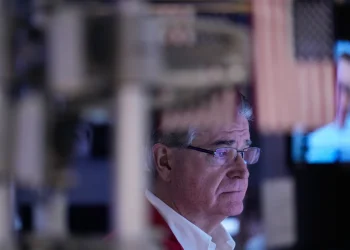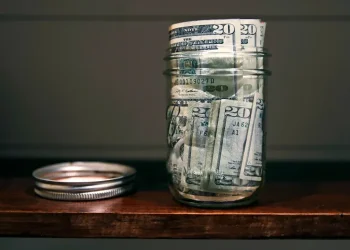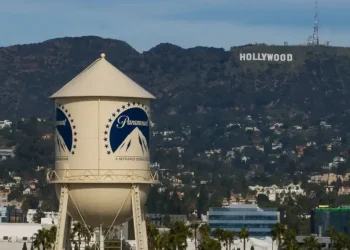The 10 Richest Americans Got $365 Billion Richer in One Year — And Now They’re Facing a Massive Tax Cut
The richest 10 Americans saw their combined wealth surge by a staggering $365 billion over the past year — that’s roughly $1 billion gained every single day. This eye-popping growth comes despite recent market jitters, according to a new analysis from Oxfam.
To put it in perspective, the typical American worker earned just over $50,000 in 2023. It would take 726,000 years for 10 median-earning Americans to match the wealth gained by these 10 billionaires in a single year.
This enormous gap highlights just how extreme wealth inequality has become in the U.S. — and it’s happening right as Republicans debate a costly tax bill that experts warn could make the rich even richer while slashing nearly $1 trillion from vital social programs.
Elon Musk’s Wealth Soars by $186 Billion
Oxfam’s report tracked changes in net worth for the top 10 billionaires based on the Forbes Real-Time Billionaire List from April 2024 to April 2025.
Tesla CEO Elon Musk led the pack, adding a jaw-dropping $186.1 billion to his fortune — more than half of the total wealth increase for the group. Analysts have even predicted Musk is on track to become the world’s first trillionaire.
Other big winners include Meta’s Mark Zuckerberg and Walmart heirs Rob and Jim Walton, who each saw their net worth grow by roughly $35 to $39 billion. Meanwhile, some billionaires, like Google co-founders Larry Page and Sergey Brin, actually lost money during this period.
A Tax Cut That Could Deepen Inequality
Oxfam warns that a Republican tax bill, championed by former President Trump, could worsen this imbalance. The legislation would extend the 2017 Tax Cuts and Jobs Act, making most individual tax breaks permanent while temporarily cutting taxes on tips and overtime pay.
Nonpartisan analyses show this bill would boost economic output but disproportionately benefit the wealthy. The Congressional Budget Office (CBO) projects the top 10% of earners would see their household resources grow by 2%, while the bottom 10% would face a 4% drop by 2033.
According to the Penn Wharton Budget Model, the richest 10% would capture nearly two-thirds of the tax cut’s value, while the poorest 20% could lose over $1,000 annually due to cuts in Medicaid, food stamps, and other programs.
Kent Smetters, a professor at the Wharton School, highlighted that over 10 years, the top 10% could receive $3.1 trillion in tax breaks — even though this group already pays about 70% of federal income and payroll taxes.
Calls for a Wealth Tax Grow Louder
In response to skyrocketing billionaire wealth, some progressives have proposed a wealth tax on fortunes over $1 billion. Oxfam estimates that a 3% tax on these ultra-rich fortunes could raise $50 billion from the top 10 billionaires alone — enough to provide food assistance for 22.5 million people for a year.
However, taxing wealth presents significant challenges. Valuing complex assets can be difficult, and some legal experts question whether a wealth tax is constitutional.
Political Reactions: A Divided Nation
Senator Elizabeth Warren blasted the GOP bill as a “giveaway” to the rich, emphasizing that billionaires don’t need more breaks while working Americans struggle.
On the other side, the White House insists Trump’s policies helped reduce wealth inequality during his first term and that extending those tax cuts will restore prosperity for “Main Street.”
The Growing Debt Concern
All this comes amid growing worries about America’s soaring $36 trillion national debt. Moody’s recently downgraded the U.S. credit rating — a first since 1917 — citing rising government debt and interest payments.
Though the White House argues that the tax bill won’t increase the deficit, fiscal watchdogs disagree. The Committee for a Responsible Federal Budget warns the bill could add $3.3 trillion to the debt over a decade, or $5.2 trillion if temporary tax breaks become permanent.
The CBO estimates the cost could be even higher — $3.8 trillion added to the debt — risking inflation and higher interest rates.
Bottom Line
While America’s richest billionaires continue to amass mind-boggling fortunes, millions of ordinary Americans face shrinking resources and cuts to essential programs. As lawmakers debate the future of the tax code, the question remains: Will the wealth gap widen even further — or will policymakers find a way to create a fairer economy?
This article was rewritten by JournosNews.com based on verified reporting from trusted sources. The content has been independently reviewed, fact-checked, and edited for accuracy, neutrality, tone, and global readability in accordance with Google News and AdSense standards.
All opinions, quotes, or statements from contributors, experts, or sourced organizations do not necessarily reflect the views of JournosNews.com. JournosNews.com maintains full editorial independence from any external funders, sponsors, or organizations.
Stay informed with JournosNews.com — your trusted source for verified global reporting and in-depth analysis. Follow us on Google News, BlueSky, and X for real-time updates.














